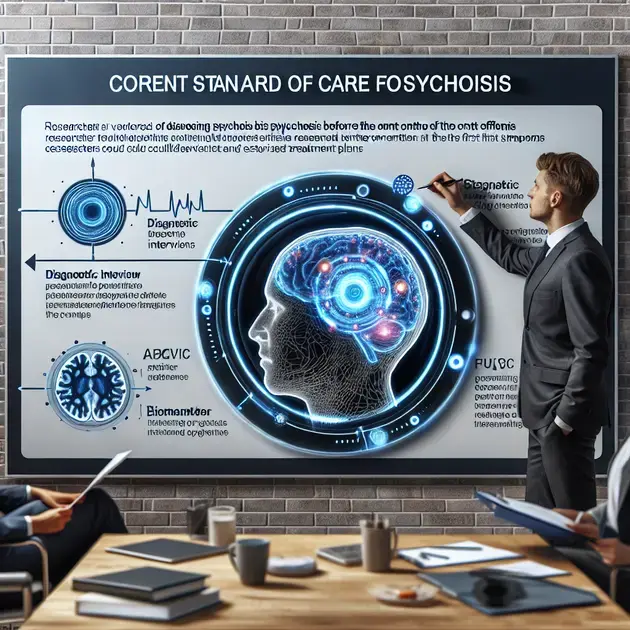Title: Early Diagnosis of Psychosis: Exploring the Promise of Brain Biomarkers for Timely Interventions and Personalized Care
Introduction:
Psychosis, a mental disorder characterized by a loss of contact with reality, often manifests through symptoms such as delusions, hallucinations, and disorganized thinking. Currently, the standard approach to diagnose psychosis is through a comprehensive diagnostic interview that relies on patients experiencing symptoms. However, researchers believe that detecting psychosis before the emergence of symptoms could revolutionize treatment and care for affected individuals. In this article, we explore the potential of brain biomarkers as a way to achieve early diagnosis and enable more timely interventions and personalized care for individuals at risk of psychosis.
The Need for Early Diagnosis:
Early diagnosis of psychosis holds significant importance due to the potential preventable consequences associated with delayed treatment. Individuals with untreated psychosis may experience worsening symptoms, impaired functioning, and a greater risk of comorbidities. Furthermore, early intervention has proven to be crucial in achieving better treatment outcomes and improving long-term prognosis.
Brain Biomarkers and Their Potential:
Recent advancements in neuroscience have shed light on the possibility of identifying reliable biomarkers in the brain that may indicate a predisposition for psychosis. These biomarkers can offer insights into the neurobiological underpinnings of the disorder and help predict who may be at a higher risk of developing psychosis. As such, they hold immense potential in facilitating early diagnosis and personalized care for individuals at risk.
Research Findings:
Various studies have reported promising findings regarding potential brain biomarkers for psychosis. For instance, alterations in brain structure, such as reduced gray matter volume and abnormal connectivity patterns in certain regions, have been observed in individuals with psychosis. Additionally, aberrant activation patterns in specific brain regions during cognitive tasks have also shown potential as biomarkers. By leveraging advanced neuroimaging techniques and analysis methods, researchers are narrowing down on specific biomarkers that could be clinically applicable.
Implications for Treatment and Care:
Early identification of individuals at risk of psychosis through brain biomarkers can lead to personalized interventions tailored to an individual’s specific needs. These interventions may include targeted medications, psychoeducation, cognitive-behavioral therapies, and psychotherapy. Moreover, early detection allows for increased support from mental health professionals, which can significantly improve patients’ overall well-being, enhance treatment adherence, and potentially prevent the onset of psychosis or minimize its impact.
Conclusion:
The quest for early diagnosis and interventions in psychosis has gained momentum with the exploration of brain biomarkers as potential diagnostic tools. While further research is needed to validate and refine these biomarkers, the potential benefits of early identification and personalized care cannot be understated. If successful, the integration of these biomarkers into clinical practice has the potential to transform the standard of care for psychosis, leading to improved outcomes for individuals at risk and their families.
The current standard of care for psychosis involves conducting a diagnostic interview. However, researchers are now exploring the possibility of diagnosing psychosis even before the onset of the first symptoms. They are focusing on identifying a potential biomarker in the brain that could potentially facilitate earlier interventions and customized treatment plans.
